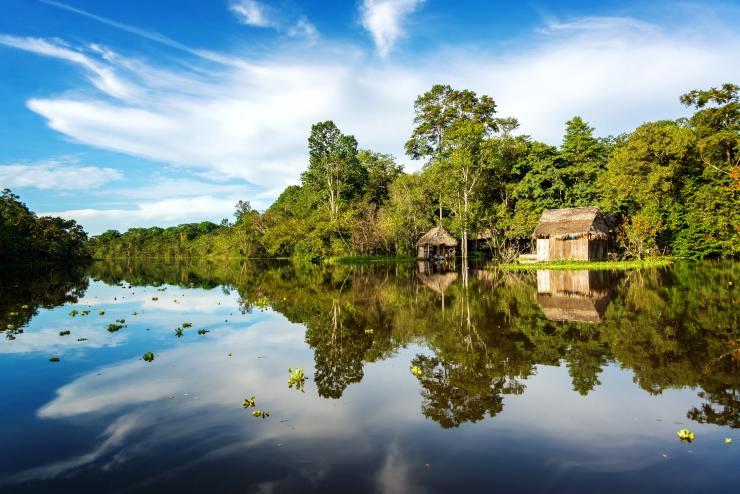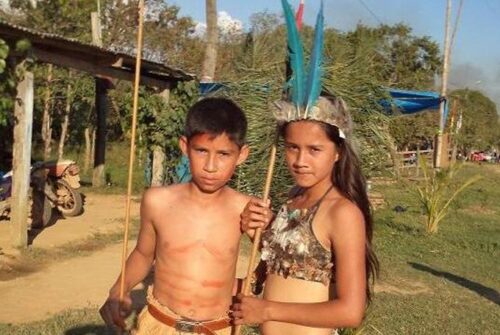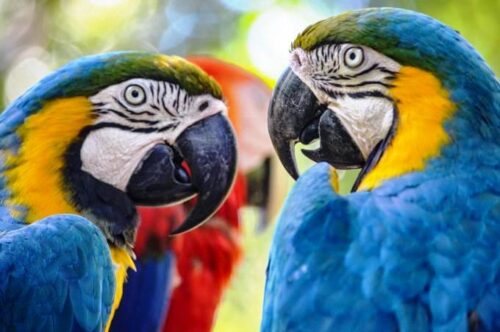Bolivia. The Festival of the Chacobo Community.

The Chacobos are a small indigenous people living on the banks of the Benicito river in the northeast of Bolivia. They organise festivals at the time of cassava and corn harvest.
One of the members of the community is given the task to organise the festival, he is supposed to personally invite each man of the community one week ahead of the event. The purpose of this notice is to give time for participants to get new clothes for the party.
Then, the organiser of the festival along with the men of the community goes to the jungle to cut wood to make firewood, in the meantime his wife and the other women of the community prepare the meal and the drinks for the event. After collecting firewood, the men take with them their hammocks and some cassava flour and leave their homes to go hunting in the jungle for two or three days. But if the hunting is not successful, they go fishing as a second option. The Chacobos say that just few monkeys are not enough for their community festivals, they need big animals such as antas (tapirs) and peccaries, in order to have enough meat for everybody.
When men come back home, women roast the meat of the animals the men caught in the jungle. The Chacobo women also go to the fields to collect corn and cassava to make drinks for the party.

The Chacobos Children. File Swm
The festival organiser invites also the nearby communities. The place where celebrations will take place is carefully cleaned. The festival starts early in the morning; the Chacobos wear their party clothes and paint geometric patterns onto their skin. The women sing and prepare the food for the meal which is placed in large pots.
If the festival is a ‘corn festival’, then the meal will be ‘a corn-based meal’: chicha, tamales, and corn of course. If the festival is a ‘cassava festival’ the meal will be a ‘cassava-based meal’.
When everything is ready, they put the pot with the fermented drink in the centre of the place where the guests are supposed to arrive, and the roast meat in baskets around it. The central moment of the party is when the men of the host community begin to play music. Visitors entering the place also play their flutes and dance. Those participants who have a firearm shoot into the air. After the moment of dancing and singing, the host men greet and welcome the visitors. For his part, the organizer invites all to sit, while the women remain outside the premises.

Blue, Yellow and Red Macaws in the Amazon rainforest. 123rf
When everyone is seated, the oldest member or the community healer is given a tutuma (squash container) filled with pieces of meat and he passes it to all the men, who take a piece. Then all the men pick up their arrows and pin them to the ground. The healer makes a sound with his mouth, this is the signal meaning that they can start to eat the piece of meat they received. Later the healer passes them the tutuma with chicha.
Once the healer ritual is over, the host offers the men who sit in small groups a cassava flour-based dish in baskets and some stew, while his wife serves the women. The food is accompanied by the drink contained in the tutuma. People eat, sing and dance to the rhythm of the flutes. When the party ends, at the moment of greetings, it can happen to find a guest already willing to organise the next festival – he and his wife invite those present. This is how the Chacobos celebrate the community festivities in the Bolivian Amazon and these events give this ethnic group the opportunity to strengthen their relationship with their neighbours and the members of the nearby communities. (Open Photo: 123rf)
Jhonny Mancilla Pérez



